Elder abuse can take many different forms. No matter what form it takes, elder abuse is a crime, but it may go unreported when it occurs in a nursing home or similar facility in Indiana. Estimates indicate that as many as five million older Americans may suffer some form of abuse each year.
Types of abuse common in care facilities
Nursing home abuse can encompass several categories, including the following:
- Physical abuse involves the willful infliction of physical injuries.
- Psychological abuse involves humiliation, threats or other forms of mental anguish.
- Financial abuse can occur when elders’ assets are used or taken without their consent.
- Neglect occurs when caretakers fail to provide services necessary to prevent harm.
About 10% of respondents in one study reported some type of abuse in any given year. Financial abuse by a family member is the most commonly reported incident, followed by potential neglect, emotional abuse, physical abuse and sexual abuse. In 90% of the cases, the perpetrator is a family member, not a care home employee or in-home caregiver. Moreover, two-thirds of abusers are adult children or spouses.
Abuse is a form of personal injury
Symptoms of elder abuse take different forms, depending on the type of activity leading to it. Among the signs are bruises, lacerations, sprains, internal injuries, malnutrition, dehydration, dislocations, and other forms of physical injuries. Neglect can involve unsafe or unclean living conditions or poor hygiene if elders cannot perform grooming tasks independently.
Often an elder loved one will tell you when abuse has occurred, but patients with some form of dementia or are in failing health may have difficulty communicating with you. In these instances, look for fear and other changes in behavior and possible evidence of overmedication.








